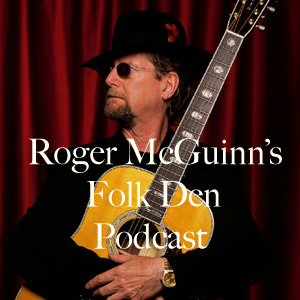
London to begin a tour of the U.K. We had decided to travel light with
just carry-on bags and one guitar. I brought my Martin D-12-45 in a
leather gig bag. Our idea was to take the trains of Europe for the whole
tour.
From the outset, people in the U.K. said ‘you’ll never be able to do
it!’ But the trains were all on time and as efficient as any form of
transportation we’d ever seen, and it was great fun!
We even took the Eurostar through the English Channel to France and
took French trains through the whole country from the north to the
south. We flew home from Nice on July 1, 1997 with a love of the people
of the U.K. and France, and of their wonderful train system. I wish the
trains in the United States worked as well!
With that in mind, I thought this old gospel song about a heavenly
train would be appropriate for the Folk Den this month. Sorry it was a
little late.
This train is bound for glory [B7] this train
[E]This train is bound for glory
[A]Don’t carry nothin’ but the righteous and the holy
[E]This train is [B7]bound for glory [E]this train
This train don’t carry no gamblers this train
This train don’t carry no gamblers this train
This train don’t carry no gamblers
No crap shooters, no midnight gamblers
This train don’t carry no gamblers this train
This train is leavin’ in the morning this train
This train is leavin’ in the morning this train
This train is leavin’ in the morning
Great God a new day’s dawning
This train is leavin’ in the morning this train
This train don’t carry no rustlers this train
This train don’t carry no rustlers this train
This train don’t carry no rustlers
No street walkers no two-bit hustlers
This train is leavin’ in the morning this train
This train is bound for glory this train
This train is bound for glory this train
This train is bound for glory
Don’t carry nothin’ but the righteous and the holy
This train is bound for glory this train
� 1998 McGuinn Music – Roger McGuinn









